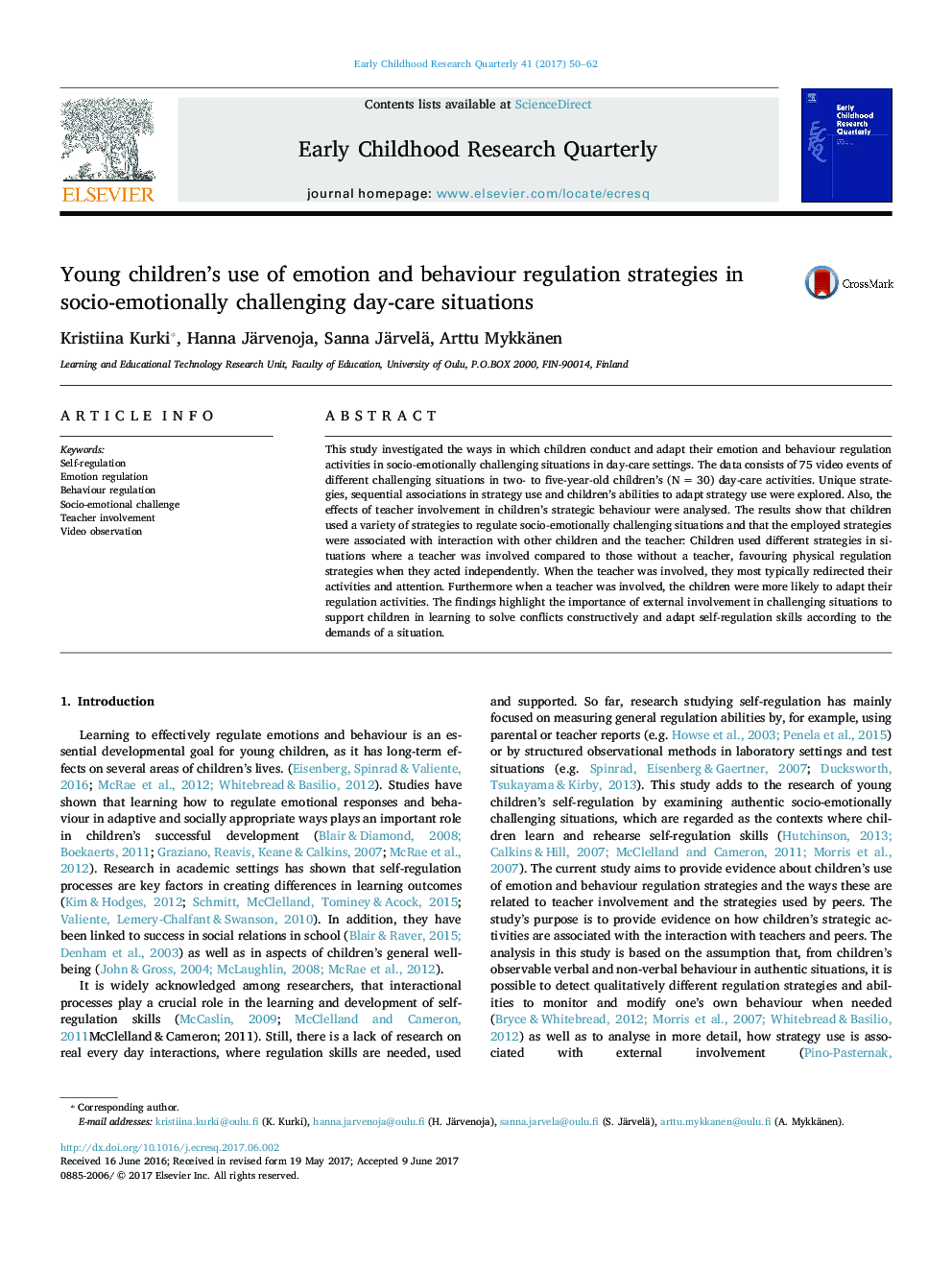| Article ID | Journal | Published Year | Pages | File Type |
|---|---|---|---|---|
| 4938210 | Early Childhood Research Quarterly | 2017 | 13 Pages |
Abstract
This study investigated the ways in which children conduct and adapt their emotion and behaviour regulation activities in socio-emotionally challenging situations in day-care settings. The data consists of 75 video events of different challenging situations in two- to five-year-old children's (NÂ =Â 30) day-care activities. Unique strategies, sequential associations in strategy use and children's abilities to adapt strategy use were explored. Also, the effects of teacher involvement in children's strategic behaviour were analysed. The results show that children used a variety of strategies to regulate socio-emotionally challenging situations and that the employed strategies were associated with interaction with other children and the teacher: Children used different strategies in situations where a teacher was involved compared to those without a teacher, favouring physical regulation strategies when they acted independently. When the teacher was involved, they most typically redirected their activities and attention. Furthermore when a teacher was involved, the children were more likely to adapt their regulation activities. The findings highlight the importance of external involvement in challenging situations to support children in learning to solve conflicts constructively and adapt self-regulation skills according to the demands of a situation.
Related Topics
Social Sciences and Humanities
Psychology
Applied Psychology
Authors
Kristiina Kurki, Hanna Järvenoja, Sanna Järvelä, Arttu Mykkänen,
